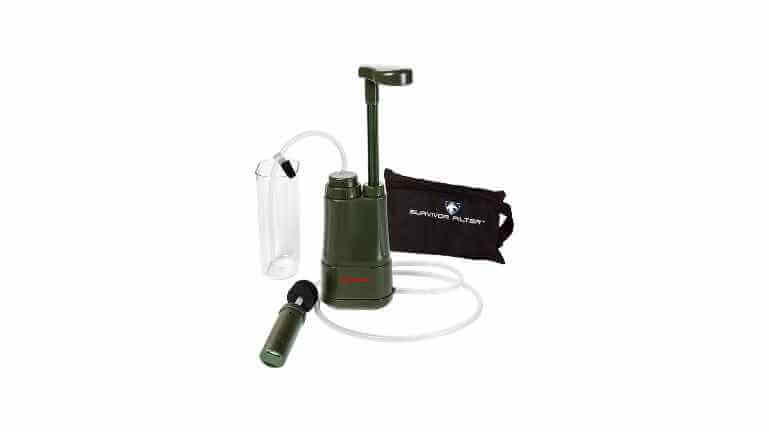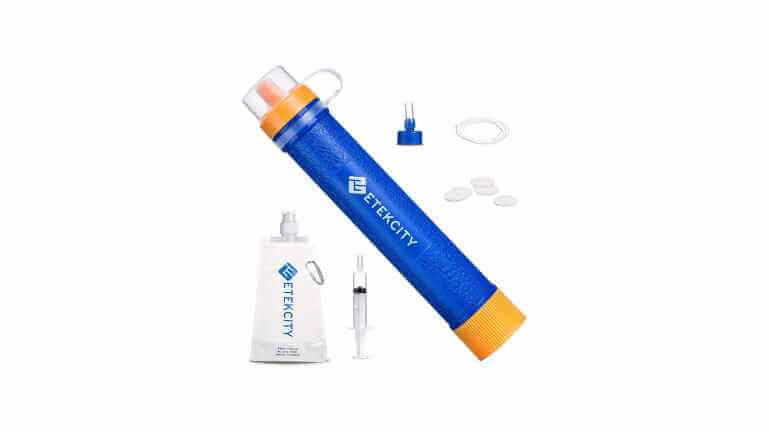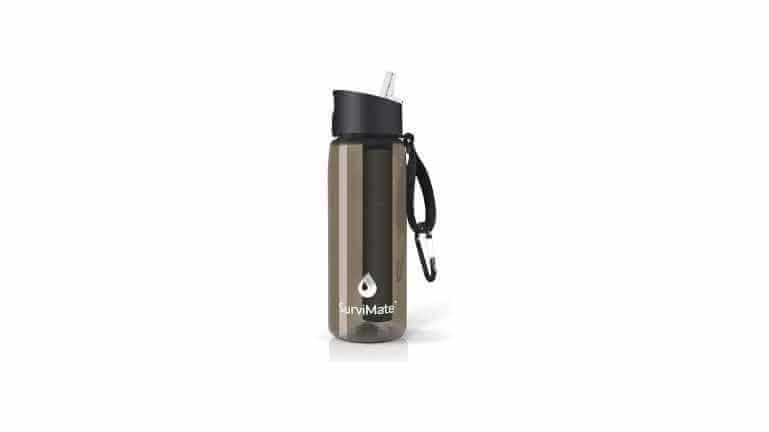Clean drinking water is essential, especially for outdoor enthusiasts and travelers. A portable water filter is a must-have tool, ensuring safe hydration from any source. Compact, efficient, and easy to use, these filters provide peace of mind in uncertain environments. Discover the benefits of having a reliable portable water filter on your adventures.
Best Portable Water Filters Buying Guide
What is a Portable Water Filter?
A portable water filter is a compact, lightweight device designed to remove contaminants from water while hiking, camping, or during emergencies when clean drinking water may not be readily available. Portable filters make use of mechanical filtration, chemical absorption/adsorption, or a combination of methods to eliminate bacteria, protozoa, solids, chemicals, heavy metals, and viruses and improve water taste in untreated water sources.
Why You Need a Portable Water Filter
Drinking contaminated or untreated water while in the wilderness, while traveling, or in an emergency can cause serious health issues due to exposure to bacteria, viruses, and parasites. Common waterborne contaminants that can cause nausea, fever, organ damage, and even death include E. coli, Giardia protozoa, Salmonella bacteria, Cryptosporidium, and more. A good portable filter eliminates these hazards, giving you access to safe, clean drinking water anywhere to avoid dehydration or illness when taps and water treatment facilities are unavailable.
Features to Look For
There are several key factors and specifications to consider when selecting the best portable water filtration system to meet your needs:
Filtration Capabilities
You want robust contaminant removal. Seek at least 0.1-micron mechanical filtration, which traps protozoa, giardia, bacteria, and most other hazards using an internal fiber, ceramic, or hollow membrane cartridge that water is squeezed through. Combination purifiers and filters also use chemical absorption processes to neutralize viruses and heavy metals found in unclean water sources.
Flow Rate
The liters (or gallons) per minute flow rate determines how quickly you get filtered water. Faster is better when continually refilling bottles, reservoirs, etc. Most portable filters feature flow rates between 0.5 and 2+ liters per minute. Higher flow rates mean less waiting and pacing to meet hydration demands.
Weight & Size
Backpackers and hikers prioritize compact, ultralight constructions under 12 ounces. But more filtration power often requires bigger housings and more media, increasing weight. Compactness while providing adequate flow and treatment is ideal for portability.
Filter Capacity
How much water can the filter handle before replacement cartridges/elements are needed? Standard capacities range from about 100 gallons (for ultralight models) to 1500+ gallons for hardcore adventurers, expeditions, and long-term emergency preparedness. Monitoring filtered water quantities lets you know when it’s time to swap cartridges.
Ease of Use
Simple, quick assembly that integrates onto standard bottles or links to hydration packs for inline filtration is most convenient. Models requiring pumping or complicated setups are more difficult to use. Gravity-fed filters avoid such hassles but trade-off being bulkier.
Additional Recommended Features
- Activated carbon filtration to improve taste, odor, and chemical reduction
- Foam pre-filters that extend cartridge lifetimes by screening out large particulates
- Alert mechanisms indicate when filter cartridge need replacing after reaching capacity
- Durable, chemical-resistant construction built to handle heavy usage in harsh conditions
- Attached storage bottle included for filtered water collection
- Quick-connect tubing with compression fittings that won’t leak
- Removable cartridges and membranes that enable replacing just filtration components rather than entire systems
Conclusion
An effective portable water filter delivers safe, potable water free of contaminants that commonly occur in wilderness and emergency scenarios while still being convenient, durable, and simple to operate on-demand. Seek models meeting key metrics like 0.1-micron or smaller filtration, virus/chemical absorption processes, and adequate flow rate of 0.5 liters per minute or higher — all while keeping compact size and weight manageable for carrying comfort. Additional capacity, ease-of-use, and reliability features also determine which options optimally balance critical performance with portability across intended usage needs. Investing in the right portable filtration solution provides peace of mind by enabling clean water access anywhere the outdoors or situations beyond your control take you.

Ross Walters, an Electrical supplies and Water Appliances specialist, shares his extensive expertise on top platforms. With a focus on empowering professionals and enthusiasts, Ross delivers up-to-date insights and practical advice. His commitment to staying abreast of industry trends establishes him as a trusted source for navigating the complexities of electrical systems and water appliances.





